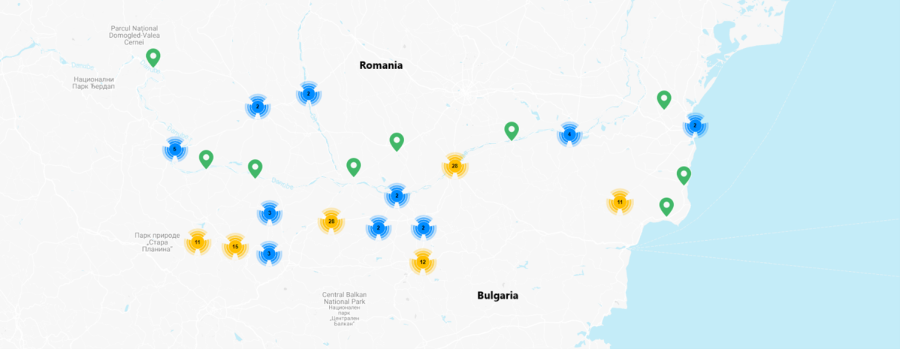What
The cross-border labour market between Romania and Bulgaria is characterised by chronic shortage of workers, skill mismatch, lack of information about the neighbouring labour market, language barriers, and red tape hurdles. All these challenges hamper regional employment and cross-border labour mobility. The region lacks specialised services and institutions like the EURES partnership (a European cooperation network of employment services, designed to facilitate the free movement of workers) especially in border regions where workers face several obstacles on a daily basis and public transport is often less developed. Moreover, the barrier represented by the Danube River further worsens the area’s accessibility.
The VISA project aims to overcome these hurdles by establishing a Labour Mobility Agency, an easy-to-use service that connects job seekers and employers and provides timely information on available vacancies, rules for wages and hiring in another country, legal and tax implications and residency or document requirements.
In addition, the agency provides several specialised services:
- A fully licensed training centre offering skill-building, certifications and language courses to jobseekers
- The organisation of exchange visits in the neighbouring country
- Support during recruitment and the onboarding of new employees for employers and companies
- Research and dissemination of information concerning the local labour market.
The mission of the VISA project is to support cross-border employment and maximise its positive implications for regional economic connectivity and development.
Who
The project is run by the Bulgarian-Romanian Chamber of Commerce and Industry, a business organisation with stakeholder networks on both sides of the border that supports the economic development and integration of these two neighbouring countries. The Association for Sustainable Development Slatina (RO), an organisation focused on achieving economic and social progress of local communities, is the project partner.
Where

How
The project has been co-financed in the framework of Interreg V-A Romania-Bulgaria with an ERDF contribution of around € 500,000. The investment falls under the priority axis 4 “A skilled and inclusive region”. The project ran for two years, from April 2017 to April 2019.
Results
The project’s activities resulted in the establishment of the VISA Cross Border Agency for Work Mobility offices and the training of its staff to provide tailored and flexible support to jobseekers. The services can also be accessed through an online trilingual platform which is still operating after the project’s end. Companies can register on this platform and can post about vacancies within their organization. The agency offers support to organizations, helping them attract the interest of potential employees from the neighbouring country. Most of the companies who are currently registered already have experience in hiring foreign workers and have established their position in the markets of both countries. Jobseekers are able to view vacancies posted on the platform without registering, but only those who are registered can apply for these jobs. One of the site’s most popular features is an interactive map where users can access updated training, educational, and work opportunities available across the region.
Moreover, the lead partner has acquired a certificate by the National Agency for Vocational Education and Training (NAVET) Bulgaria as a Professional Training Centre, licensed to train for ten professions. In terms of research and information, an in-depth study on labour mobility and two guides for commuters were also produced as part of the project.
The project contributed to increasing services in the area by providing this new joint local employment initiative. This has resulted in deepening the integration of the cross-border area in terms of employment and labour mobility. It is important to note that the advantages of living in the Single Market are also related to the job market, and the freedom of movement. Combined, they can increase and sometimes compensate for job opportunities that are not available within national borders, with workers enjoying equal treatment with nationals in access to employment, working conditions and all other social and tax advantages.
More information
- Logige sisse kommentaaride postitamiseks
- Sildid
- employment transport education

